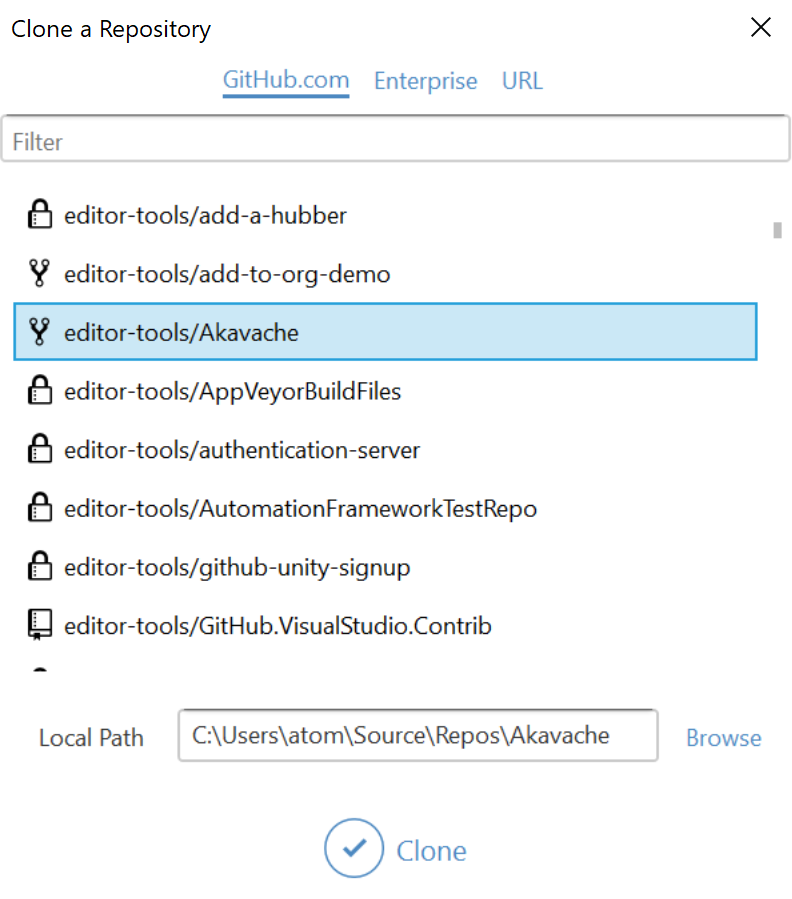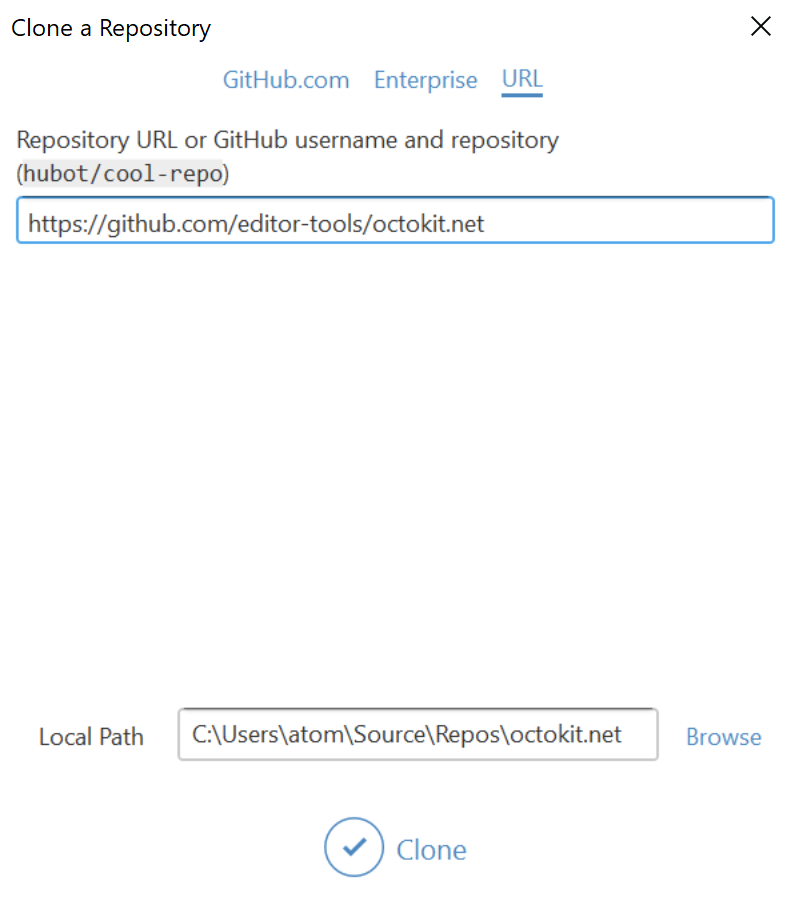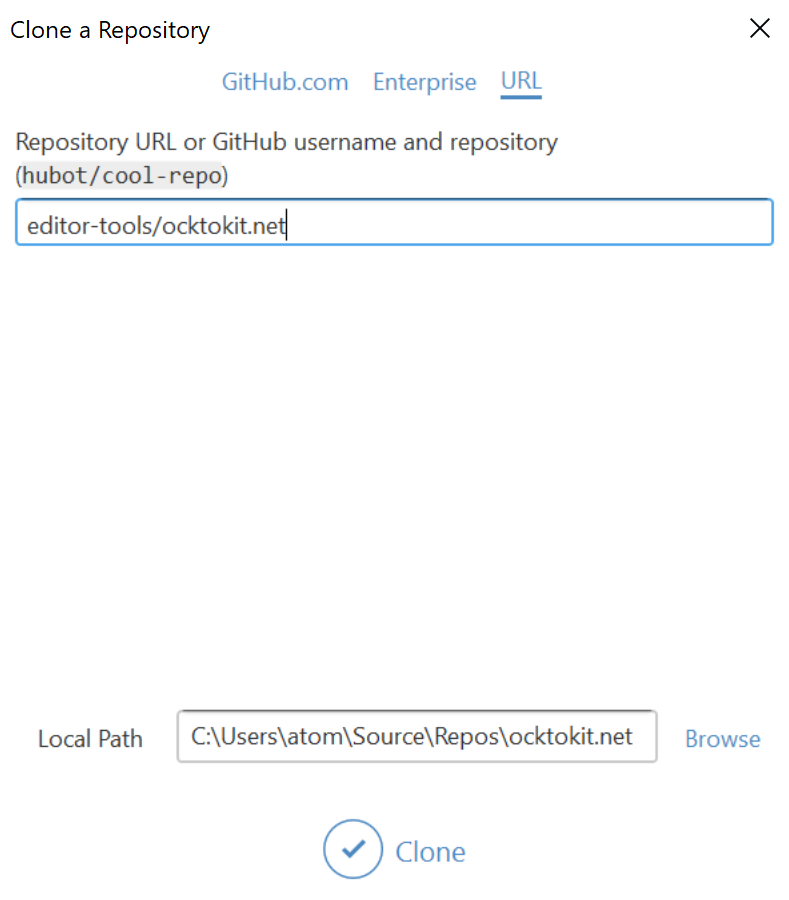New and improved clone experience in GitHub for Visual Studio
Clone GitHub repositories with the extension’s dialog in two ways.

In our latest release of GitHub for Visual Studio, we introduced a new clone dialog that improves the load time of the repository list using GraphQL. There are also separate tabs to clone repositories from GitHub and GitHub Enterprise and an additional option to clone from a URL.
Thank you @grokys for your work on refactoring the clone dialog and providing two ways to clone GitHub repositories with our extension’s dialog!
Select a repository to clone
The first way to clone a repository is using the “GitHub.com” or “GitHub Enterprise” tabs and selecting a repository from the list.

There’s also the option to use the “Filter” field to narrow down the list of repositories instead of scrolling down the full list.
Clone by URL
The second way to clone a repository is to enter either a full URL or the username and repository names. This is necessary when you want to clone a public repository which you (or one of your organizations) don’t own.


Default clone path
We’ve also updated the default clone path. Previously, we would just clone to the default clone path (found under Team Explorer > Settings > Global Settings > Default Repository Location). Now, you’ll find that the owner and repository name are appended to your default clone path, adding more structure and organization to your local repositories.
Internationalization
We’ve also started to localize GitHub for Visual Studio to give more users a first-class experience when developing with GitHub. We first focused on translating the extension to Chinese.
Figuring out the best practices for localizing an extension has been a learning process. Thanks to @maikebing for providing both simplified and traditional Chinese translations and to @grokys, @jcansdale, and @stanleygoldman for learning how to use Crowdin, the platform supporting our internationalization, and understanding how our extension can support multiple languages successfully.
We’re excited to do more localization in the future for other languages. To see our progress or get involved, check out the issue.
Improving our extension
Thanks to @jcansdale, we’re able to learn through metrics whether our changes are supporting a more effective workflow for users. We’re also currently conducting usability studies for a new feature that we’re building and looking for participants to sign up. If you would like to participate in our 30-minute study, fill out this short survey.
Tags:
Written by
Related posts

GitHub availability report: January 2026
In January, we experienced two incidents that resulted in degraded performance across GitHub services.

Pick your agent: Use Claude and Codex on Agent HQ
Claude by Anthropic and OpenAI Codex are now available in public preview on GitHub and VS Code with a Copilot Pro+ or Copilot Enterprise subscription. Here’s what you need to know and how to get started today.

What the fastest-growing tools reveal about how software is being built
What languages are growing fastest, and why? What about the projects that people are interested in the most? Where are new developers cutting their teeth? Let’s take a look at Octoverse data to find out.